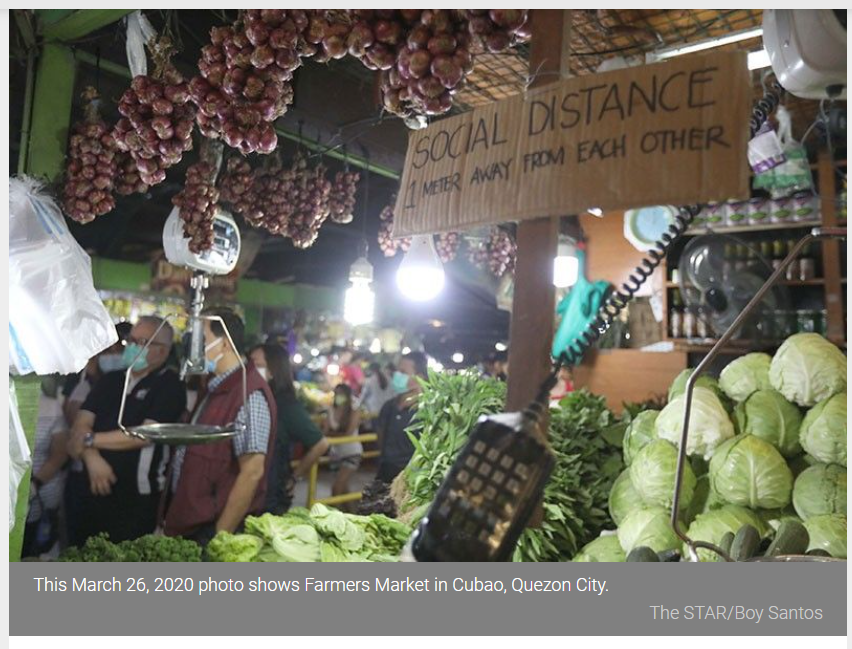Philippines: Inflation steadies anew in May but supply woes persist
MANILA, Philippines (Update 1, 12:32 p.m.) — Inflation remained steady for the third straight month in May, a welcome reprieve to consumers amid a pandemic-induced economic slump.
Inflation, as measured by consumer price index, was unchanged at 4.5% year-on-year last month from April, the Philippine Statistics Authority reported Friday. That brought the year-to-date tally to 4.4%, settling above the government’s 2-4% annual target for the fifth consecutive month.
It was a reading that sustained an easing price growth that started in March, when inflation decelerated from a 2-year high. If anything, the latest outturn alleviated some pressure on the Bangko Sentral ng Pilipinas to arrest rising prices, which officials mainly blamed on supply problems.
Even inflation felt by poorest 30% Filipino households last month was less painful, softening also to 4.5% last month from 4.9% in April. For now, BSP Governor Benjamin Diokno believes risks to the inflation outlook “are broadly balanced.”
“The latest outturn is consistent with expectations that inflation could remain above the high-end of the target range during the quarter as meat and oil prices remain elevated,” Diokno said in a statement after the release of official data.
“Nonetheless, the BSP expects inflation to decelerate to within the target range by the second half of 2021 to 2022 as domestic supply bottlenecks are addressed,” he added.
Data showed elevated prices of some food items, especially pork, continued to drive inflation last month. As the local African swine fever outbreak remains uncontained, the resulting supply shortage pushed up pork meat inflation at an annualized 22.1% in May. In the National Capital Region alone where tight pork supply is more pronounced, meat inflation accelerated 22% on-year.
At the same time, demand from people ditching expensive pork meat for other protein sources is increasing the cost of fish like galunggong, which is extremely popular among poor families because of its typically low price and good taste. Last month, fish inflation quickened to 7.8% on-year even as prices are typically cheap during the dry season as compared to monsoon months when catches are vulnerable to bad weather.
Offsetting the spike in prices were cheaper transport costs despite rallying oil prices. According to National Statistician Dennis Claire Mapa, fares were lower last month but fuel prices still had an impact.
As it is, the Duterte administration is banking on higher pork imports to plug an estimated 400,000-metric ton supply hole this year and, in turn, rein in inflation. While additional supply from abroad is starting to arrive, Mapa said its impact on local pork prices is not yet significant at this point. “We might see the impact on prices once we collect data in June,” Mapa said.
So far, this path is keeping many analysts optimistic that inflation would soften in the coming months. Sought for comment, Sanjay Mathur, economist at ANZ Research, believes inflation will be milder in the next months.
“See, I feel that it probably will moderate in the coming months – food prices and pork in general should come under control, oil prices seem to have peaked and the re-opening of the economy will probably ease supply side restrictions,” he said in an e-mail exchange.
Nicholas Mapa, senior economist at ING Bank in Manila and not related to PSA’s chief statistician, agreed, forecasting inflation to be on a downtrend by the second half of 2021. The moderating price upticks, in turn, would allow the BSP to keep its ultra-loose monetary policy settings once the powerful Monetary Board meets on June 24, he said.
“We expect BSP to retain policy at the June 2021 meeting and keep policy rates unchanged until perhaps June of 2022, given Governor Diokno’s recent forward guidance,” Mapa said.
Source: https://www.philstar.com/business/2021/06/04/2103084/inflation-steadies-anew-may-supply-woes-persist


 Thailand
Thailand




